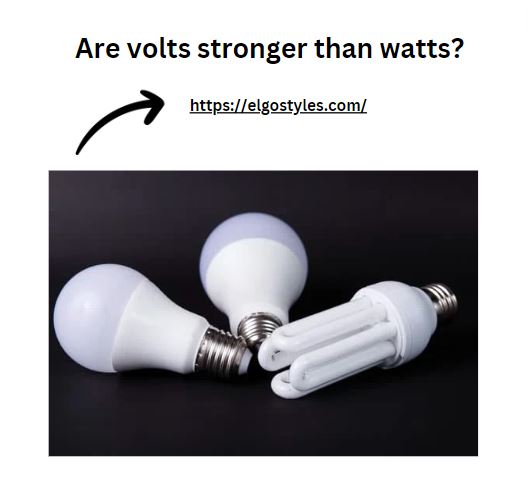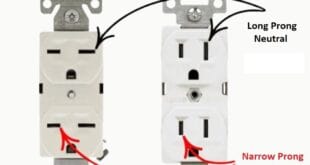Answer:
No, volts are not stronger than watts. Volts and watts are different units of measurement for electricity. Volts measure electrical potential, while watts measure power, which is the rate at which energy is used or produced.

Reasoning:
Volts and watts are distinct concepts in electricity. Volts represent the force or potential difference pushing electric charge, analogous to water pressure in a hose. Watts, on the other hand, measure the actual power consumed or produced by a device. Watts are determined by both volts and current (measured in amperes) in a circuit, as power (in watts) equals voltage (in volts) multiplied by current (in amperes) (P=VI).
FAQs:
Is a higher voltage stronger than a higher wattage?
No, higher voltage does not necessarily mean stronger power. Power is determined by both voltage and current.
Can volts and watts be compared directly?
No, volts and watts measure different aspects of electricity and are not directly comparable.
Do volts represent the strength of electricity?
Volts represent the electrical potential or force, not the strength of electricity.
Can watts exist without volts?
No, watts are dependent on both voltage and current.
If I increase volts, does power increase automatically?
No, power also depends on the current; increasing volts alone doesn’t guarantee increased power.
Is voltage the same as power?
No, voltage is not the same as power; voltage is the electrical potential, while power is the rate of energy transfer.
Can a device have high volts but low watts?
Yes, if the current is low, a device can have high voltage but low power (watts).
Do volts determine the brightness of a light bulb?
No, the brightness of a light bulb is determined by watts, not volts.
Can you feel the difference between volts and watts?
No, you cannot feel the difference between volts and watts; they are abstract measurements.
Is it dangerous to have high volts in a circuit?
High volts can be dangerous, but the overall danger depends on the current and the resistance in the circuit.
 Electrical Engineering World Wiring a Brighter Tomorrow!
Electrical Engineering World Wiring a Brighter Tomorrow!


